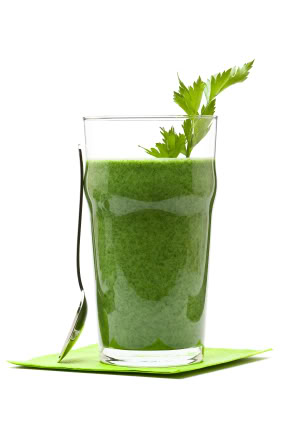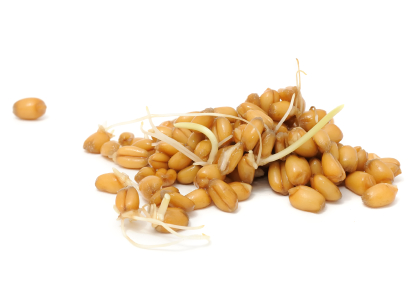 Just the other day I was at my local health food market flipping through a popular health food magazine and I stumbled upon an interview with Suzanne Somers.
Just the other day I was at my local health food market flipping through a popular health food magazine and I stumbled upon an interview with Suzanne Somers.
She was promoting her new book about cancer prevention and I was absolutely stunned to see that about 75 percent of the supplements, herbs, and spices that she spoke about are mentioned in the Torah.
We all know that the Torah is the blueprint for creation. But now, we’re really beginning to see the enormous depth of Torah knowledge coming into the world. It’s just awe inspiring to think about it!
In today’s feature article I’ll be going through ten medicinal foods and herbs that are highlighted in the Torah, and that modern science is uncovering as potent cancer preventives and health promoters.
The ten medicinal foods and herbs that I’ll be discussing are Aloe, Cinnamon, Clove, Peppermint, Garlic, Pomegranate, Oregano, Flax, Olive, and Walnut.
Let’s start with Aloe:
Aloe Vera
The Aloe Vera plant is best known for its healing effect on the skin, but its healing benefits are actually very far reaching and in many cases, almost miraculous. Aloe is dramatically effective on burns of all types, and is also excellent for cuts, insect stings, acne and blemishes, poison oak, skin ulcers, and eczema – really any type of inflammation on the skin. It’s wise to keep aloe in your kitchen just in case you suffer a painful burn while cooking.
Just as with the skin, Aloe Vera is exceptionally healing to inflammation internally as well, specifically with regard to the colon. Taken internally as a juice, Aloe is known to aid in the healing of stomach disorders, ulcers, constipation, hemorrhoids, colitis, and all colon problems. You can make a cocktail of diluted Aloe Vera juice with flax seeds that have been ground into a powder. This winning combination can be a miracle for periodically cleansing the colon of impurities.
Oregano
Oregano is a flavorful and pungent culinary herb with a wealth of health benefits behind it. It contains aromatic oils that are antibacterial, anti-oxidant, and anti-inflammatory. In fact, oil of oregano extract is known to be one of the most potent antidotes to the common cold and flu. When you feel a cold coming on or you have been exposed to a lot of coughing and sneezing, take three or four drops of oil of oregano in a teaspoon of honey and keep this up for 24 hours, as needed. This is a very powerful remedy that should not be used with children.
The Journal of Agricultural and Food Chemistry in November 2001 had a cover story:
Herbs a Rich Source of Healthy Antioxidants; Oregano Ranks Highest
Oregano ranked even higher in antioxidant activity than fruits and vegetables, which are known to be high in antioxidants. In comparison to the antioxidant activities of a few select fruits and vegetables, the potency of oregano ranks supreme: Oregano has 42 times more antioxidant activity than apples, 30 times more than potatoes, 12 times more than oranges and 4 times more than blueberries.
For example, one tablespoon of fresh oregano contains the same antioxidant activity as one medium-sized apple, she says.
The most active phenol component in oregano is rosmarinic acid, a strong antioxidant.
Antioxidants have become synonymous with good health. They are a class of compounds thought to prevent certain types of chemical damage caused by an excess of free radicals, charged molecules that are generated by a variety of sources including pesticides, smoking and exhaust fumes.
Garlic
Garlic, as well as onions (which are both mentioned in the Torah) have been used since the dawn of civilization to treat a host of illnesses. They are broad-range antibiotics that combat bacteria, viruses, and intestinal parasites. Garlic and onions lower blood pressure, blood cholesterol, and prevent dangerous blood clotting. Both are on top of the list as cancer-preventing foods.
Garlic, a member of the lily family, may be the most important herb to strengthen the immune system and detoxify the body of harmful chemicals that can cause cancer. Diallyl sulfide, organosulfides, and selenium are compounds of garlic that have been shown to remove potent carcinogens from the body.
Garlic has immune-enhancing allium compounds (dialyl sultides) that appear to increase the activity of immune cells that fight cancer and indirectly help break down cancer causing substances. These substances also help block carcinogens from entering cells and slow tumor development. Diallyl sulfide, a component of garlic oil, has also been shown to render carcinogens in the liver inactive. Studies have linked garlic — as well as onions, leeks, and chives — to lower risk of stomach and colon cancer.
Dr. Lenore Arab, professor of epidemiology and nutrition at the University of North Carolina at Chapel Hill reported her findings in the October 2000 issue of the American Journal of Clinical Nutrition. According to the report, people who consume raw or cooked garlic regularly face about half the risk of stomach cancer and two-thirds the risk of colorectal cancer as people who eat little or none. Their studies didn’t show garlic supplements had the same effect.
It is believed garlic may help prevent stomach cancer because it has anti-bacterial effects against a bacterium, Helicobacter pylori, found in the stomach and known to promote cancer there.
Detoxifying the body is becoming more and more important in our modern world due to the large amounts of chemicals, pollutants, and bacterium in our environment – and itsn’t it wonderous that a food from the Torah is even more effective and important NOW than it was three thousand years ago!
Keep in mind, raw garlic is more powerful than cooked. The volatile oil in garlic contains allicin, which is inactivated for the most part when heated.
Enjoy raw garlic in pesto, blended with walnuts, fresh basil, extra virgin olive oil, and a little sea salt. Or make a delicious olive tepanade with raw garlic blended with green olives, fresh cilantro, and extra virgin olive oil. Blend it into butter or flax oil and spread it on toast, or toss it into pasta. My children treasure these yummy treats!
Pomegranate
Unsweetened pomegranate juice is really second to garlic as one of the most important supplements for detoxification. For centuries, the pomegranate has been valued as a symbol of health and has been an important element of Torah tradition.
In 1998, modern medical researchers went into high gear to understand the health benefits of pomegranates. This research has involved a number of top scientists from leading universities around the world, including a Nobel Laureate. So far, 47 total studies, including 14 clinical studies, have been published in peer-reviewed journals.
Professor Michael Aviram, DSc Head, Lipid Research Laboratory at the Rambam Medical Center in Haifa, is one of these researchers. He is quoted as saying the following about pomegranate:
“Different fruits and vegetables contain different types of antioxidants (e.g., vitamin E, vitamin C, beta Carotene, Lycopene, as well as polyphenols such as tannins, anthocyanins, flavonoids and phenolic acids). Although they all share the same name (Antioxidants), they are very different in structure and functions, and they interact with different types of free radicals that induce oxidative stress in the human body.
Pomegranates contain several antioxidant molecules ,mainly ellagitannin polyphenols (such as punicalagin), and their derivatives and metabolites that can protect against all types of oxidants, not just against only one.”
Every day, your body is exposed to free radicals, unstable molecules that can damage the cells in your body in a process often referred to as oxidative stress.
Where do they come from? Everywhere.
Not only does your body produce them as part of normal metabolism, there are also many external sources such as air pollution, alcohol, pesticides, sunlight, tobacco smoke, drugs and fried foods. Even our stressful lifestyles are related to excess oxidative stress.
That’s where antioxidants come in.
Antioxidants are scavengers that neutralize free radicals. Although your body produces its own antioxidants, they are often insufficient to protect against the total oxidative stress we all experience. In fact, scientists have already linked free radicals to many different types of diseases.
Consuming a diet rich in natural antioxidants may help protect against free radical damage.
The combination of the multiple types of pomegranate polyphenols makes their antioxidant activity better than other antioxidants by having a wider spectrum of action against several types of free radicals. Thus, pomegranates are superior to other antioxidants in protecting LDL (“the bad cholesterol”) from oxidation, and as a result, it inhibits atherosclerosis development, as well as its consequent cardiovascular events, better than any other nutritional antioxidant.
Furthermore, pomegranate antioxidants are unique in their ability to increase the activity of the HDL (“the good cholesterol”) – which breaks down harmful oxidized lipids in the atherosclerotic plaque. Finally, the unique antioxidants in pomegranates beneficially affect two additional important atherosclerotic processes by decreasing blood pressure and by attenuating blood clotting.
Olive
The Jewish people have benefited from enormous health benefits from olives for thousands of years.
The most potent medicinal properties of olive are extracted from the actual leaf of the olive tree, although there are numerous benefits from using olive oil as well as olive oil and leaf extract combinations.
Recently, numerous reports have come out on the immune-boosting and cancer preventing properties of olive leaf extract. It has a very high antioxidant rating. The New York University School of Medicine completed definitive tests that show that olive leaf extract is able to change the pathways of HIV type infections and may even reverse these conditions.
The University of Durban-Westville in South Africa has concluded that one of the benefits of olive leaf extract is that it decreases hypertension especially in cases where the condition is related to salt-sensitivity.
Research has also been done regarding the antioxidant benefits of olive leaf extract and show that it possesses extremely high anti-oxidative qualities. Not only does this herb serve to remove free radicals from the system but it also helps to add protective qualities for the heart and circulatory system.
Through eliminating free radicals in the system olive leaf extract also helps reduce the productions of micro-toxins in the body that can eliminate many of the colds, flues and other respiratory issues that are problematic around the world.
Female-specific benefits of olive leaf extract extend to eliminating yeast and other vaginal infections as well as helping reduce the symptoms of PMS and migraine headaches.
Olive leaf contains a series of phytochemicals known as secoiridoids. The most important of these – and the major active ingredient in olive leaf – is Oleuropein which in itself is comprised of 95 different compounds. When Oleuropein is extracted out of olive leaves, along with the other phytochemicals, it works as a very wide spectrum natural antibiotic.
Studies have shown that this active ingredient is responsible for the numerous health benefits of olive leaf extract. It has been determined to be part of the olive tree’s powerful disease resistant structure.
This extraordinary herb is very safe to use.
There have been not been any reports of adverse reactions or other side effects, except that a few people experience moderate headaches – this is due to a detoxification effect and is not a counteraction to the herb.
Extra Virgin Olive Oil
Certain micro-nutrients contained in olive oil and other foods could be responsible for the Mediterranean diet’s well known heart-healthy effects (The so-called “Mediterranean Diet” is one of FOUR Genetic Nutrition-Types that I test for in my coaching).
These compounds, known as phenols, have been shown in laboratory studies to have antioxidant, anti-inflammatory and blood clot preventing powers. The intake of food high in phenols compounds could improve cardiovascular health and protect the heart.
Flax and Walnuts
Flax Seeds, Walnuts, and Fish are all mentioned in the Torah as being “special” in some way.
What do they have in common? They are the three foods with the highest potencies of Omega-3 Essential Fatty Acids. So let’s take a moment to delve into the subject of Omega-3 fats.
Over the past 20 years many studies have been carried out on the metabolism of omega-3 fats.
Today we now know that omega-3 fats are ABSOLUTELY ESSENTIAL for normal growth and development and also in the prevention and treatment of coronary artery disease, hypertension, diabetes, arthritis, other inflammatory and autoimmune disorders, and cancer. The problem is, we’re not getting enough of them.
You must know that omega-3 fats are CRUCIAL to your health and the health of your children. The human brain is also highly dependent on DHA, which is an important component of omega-3 fats – low DHA levels have been linked to depression, memory loss, and a higher risk of developing Alzheimer’s.
Essential Fats Such As Omega-6 And Omega-3 Have Been Part Of Our Diet Since The Beginning Of Human Life!
Humans have historically consumed about equal amounts of Omega-6 and Omega-3 fats, in a 1:1 ratio.
The healthy omega-6 fats are in nuts, seeds, corn, olives, and grains. But over the past 150 years this balance has been hugely upset. Current estimates in the U.S. suggest a ratio of omega-6 to omega-3 fats of almost 30:1 instead of 1:1 ratio, where it should be!
This is astonishing!
And what’s worse is that the imbalance of omega-6 fats is not from over consumption of healthy nuts and seeds, but instead from an onslaught of genetically modified CORN OIL and other highly processed vegetable oils and trans-fats in the form of margarine and vegetable shortening.
This simply has to stop.
I strongly recommend avoiding sunflower, corn, soy, safflower, and canola oil, and products that contain these oils.
This also means no hydrogenated or partially hydrogenated fats, no margarine, no vegetable oil and no shortening. These oils are full of omega-6 fats and in many cases, deadly trans-fats, and will only worsen your omega-6 to omega-3 ratio.
Instead, get your healthy dose of omega-6 fats from nuts, seeds, and whole grains, and from healthy oils such as extra virgin olive oil, coconut oil, avocados and even moderate use of real butter.
Flax seeds and flax seed oil, as well as walnuts, contain precursors of omega-3 fats and can be converted to omega-3 fats in the body. They should be taken regularly along with fish for a healthy diet.
Keep in mind that fish contain DHA and EPA, which flax and walnut do not, so it’s best to incorporate fish in addition to the flax and walnut.
Peppermint
Peppermint often has been called “a blast of pure green energy.” It’s not that there aren’t stronger stimulants, but few make you feel as renewed and refreshed as peppermint. Commonly used as a digestive aid, peppermint is highly effective for easing nausea and stomach cramps.
The tea of peppermint is a safe remedy for morning sickness, and in cases of severe nausea where tea wouldn’t be possible, you can simply spray the diluted essential oil – let’s try this now! Peppermint also anesthetizes the nerves in the intestinal tract, making it an herb of choice for stomach pain or an upset stomach.
Peppermint is great for children when they have sluggish digestion and need a burst of green energy!
Peppermint can be made into a tea, tincture, spray, and mouthwash. Peppermint is most refreshing when just recently plucked for the garden – I like to introduce children to this safe and tasty plant.
Cinnamon
The sweet and spicy flavor of cinnamon has been used for its medicinal properties for thousands of years.
One of the most talked about benefits of cinnamon relates to Type-2 Diabetes.
Cinnamon may actually help people with Type 2 diabetes control blood sugar levels, and may significantly lower LDL “bad” cholesterol, total cholesterol and triglycerides, which are fatty acids in the blood. A now famous study, was conducted by researchers from the USDA in 2003 that showed that 60 people in Pakistan who had Type 2 diabetes, who ate 1 gram of cinnamon each day over a period of 40 days, experienced a significant decrease in their blood sugar levels, LDL cholesterol, total cholesterol and triglycerides.
Dr. Frank Sacks, a physician at Brigham and Women’s Hospital and professor of nutrition at the Harvard School of Public Health stated:
“…it’s ‘a little weird,’ that the USDA study found that the beneficial effects of cinnamon lasted for at least 20 days after people stopped taking cinnamon. ‘I don’t know of any drug or product whose effects persist for 20 days.'”
Studies have indicated that cinnamon has potent antifungal, antibacterial and antiparasitic properties.
Cinnamon has been found to be effective in fighting vaginal yeast infections, oral yeast infections, stomach ulcers, and is also useful as an acute remedy for nausea and vomiting, due to it’s powerful effect on bacterial microorganisms such as listeria, e. coli, and salmonella.
Together with clove, cinnamon is one of the most potent antidotes to food poisoning. But more on this later.
Cinnamon has anti-inflammatory properties.
Many of us eat lots of fried, fatty and processed foods, and these foods cause inflammation of our internal tissues and organs, and this inflammation has been linked to heart disease. Andrew Weil, M.D. writes on the topic of anti-inflammatory diets as a means of reducing our chances of suffering heart attacks, strokes and heart disease.
The following is from Weil’s book, “Natural Health, Natural Medicine”:
“A growing consensus among cardiologists pinpoints abnormal inflammation in artery walls as a root cause of atherosclerosis and coronary heart disease.”
Cinnamon is an ally in our fight to decrease inflammation.
It is an excellent source of manganese, dietary fiber, iron and calcium. The combination of calcium and fiber can help to remove bile, which prevents damage to colon cells, which helps prevent colon cancer. Fiber can help with constipation and irritable bowel syndrome (IBS).
If that’s not enough, studies have shown that just SMELLING cinnamon improves memory and performance.
Grapes
Grape seeds and skins contain resveratrol, perhaps the most potent anticancer phytochemical in existence on this planet. And we’ve all heard the benefits of red wine.
Red wine has polyphenols that protect against various types of cancer. As you now know by now, polyphenols are potent antioxidants, compounds that help neutralize disease-causing free radicals.
Red Grapes contain bioflavonoids, powerful antioxidants that work as cancer preventives.
Grapes are a rich source of resveratrol, which inhibits the enzymes that can stimulate cancer-cell growth and suppress immune response. They also contain ellagic acid, a compound that blocks enzymes that are necessary for cancer cells – in laboratory and animal studies, this appears to help slow the growth of tumors.
Grape seed extract is commonly prescribed in France for varicose veins and other vascular problems. It contains powerful antioxidant compounds called oligomeric proanthocyanidins (or OPCs), which have been found in lab and animal studies to make blood vessels more elastic and also less likely to leak fluids that cause the leg swelling often associated with varicose veins.
Taking a full-spectrum grape extract every day – one containing the seeds and skins – is really the best way to load up on this incredible nutrient.
Clove
Every single household should have clove capsules on hand for an unforeseen outbreak of salmonella, e. coli, or listeria. Clove is one of those “miracle” spices that have historical use in the Torah and for good reason.
It is perhaps one of the most powerful germicidal agents in the herbal kingdom.
Cloves exhibit broad antimicrobial properties against fungi and bacteria, thus supporting its traditional use as a treatment for diarrhea, food poisoning and other infectious conditions.
When people talk about getting “food poisoning,” they usually mean they became ill because of bacteria that contaminated something they ate. Some who comes down with this kind of food-borne disease simply has an upset stomach. But in far too many cases serious health problems and even death can occur, especially in very young children, the elderly and people who are already ill.
In fact, the Centers for Disease Control and Prevention estimates 76 million people suffer from food-borne illnesses each year in the US, resulting in 325,000 hospitalizations and more than 5,000 deaths. But now scientists have found a way to protect against three of the top three culprits ( E. coli, Salmonella and Listeria) behind food-borne sickness.
The solution isn’t some new chemical treatment or drug. Instead, it’s exactly what I’ve been speaking about in this blog post – whole foods and spices that have been documented in the Torah, such as cinnamon, garlic, oregano, and now, clove, which is probably the strongest of all the spices for this purpose.
In a recent study published in The Journal of Food Science, a group of USDA researchers found that cloves can kill a host of harmful bacteria on contact, but especially Salmonella, Listeria and E. coli.
Long used as a pain reliever, Clove oil is known to possess powerful analgesic properties.
Eugenol, its active ingredient, comprises from sixty- to ninety percent of this herb and is thought to be responsible for its pain-killing properties. Oil of Cloves has been used around the world to relieve pain from toothache and dental treatments and remains one of the major pain relieving agents still used by dentists to ease periodontal disease and toothache. And I have diluted the essential oil with great success in teething babies.
Try it yourself and see how powerful the effects are…
Clove oil is considered by some to be one of the most powerful germicidal agents in the herbal kingdom. Its antiseptic, antibacterial properties help in the treatment of diarrhea and food poisoning by killing many types of bacteria, including pseudomonas aeruginosa, shigella (all species), streptococci, staphylococci bacteria – all of which may be involved in food poisoning – as well as pneumonocci bacteria. Its disinfectant properties make it a fine mouthwash, breath freshener and toothpaste ingredient.
Reputed to have antiviral and anti-fungal properties, Clove oil is said to increase the efficacy of ”acyclovir,” a drug used to treat the viral infections underlying Bell’s palsy, chronic fatigue syndrome and herpes. It is also thought to be beneficial in counteracting the fungus that causes athlete’s foot.
And now rewind to my discovery that Suzanne Somers, of all people, is writing bestselling books about many of these foods and spices from the Torah. According to her interview, she takes olive leaf extract every day, drinks aloe vera juice, takes a full-spectrum grape extract daily, eats raw garlic, takes a handful of walnuts frequently, drinks unsweetened pomegranate juice, uses flax oil regularly, and takes two tablespoons of flax seeds softened up in water every night before bed.
Somers is using these ancient supplements as the Jewish people have done for thousands of years, and I strongly suggest that you discover them for yourself.
Don’t you think it’s time to give a few of these “magical” herbs from the Torah a try?
Don’t be afraid – most of them taste fabulous…
Enjoy!




